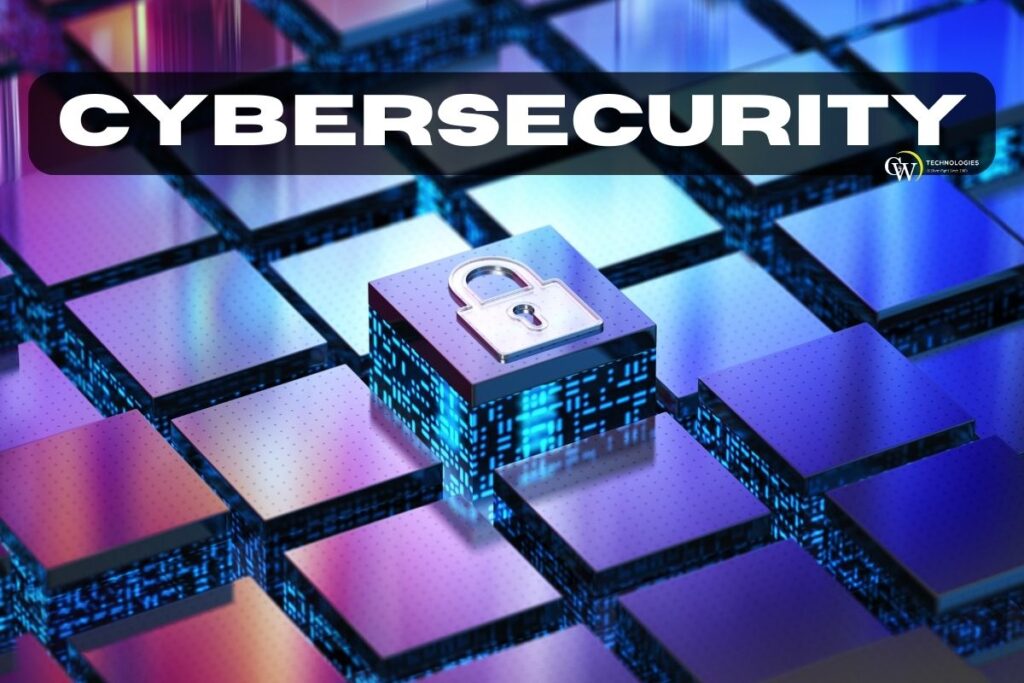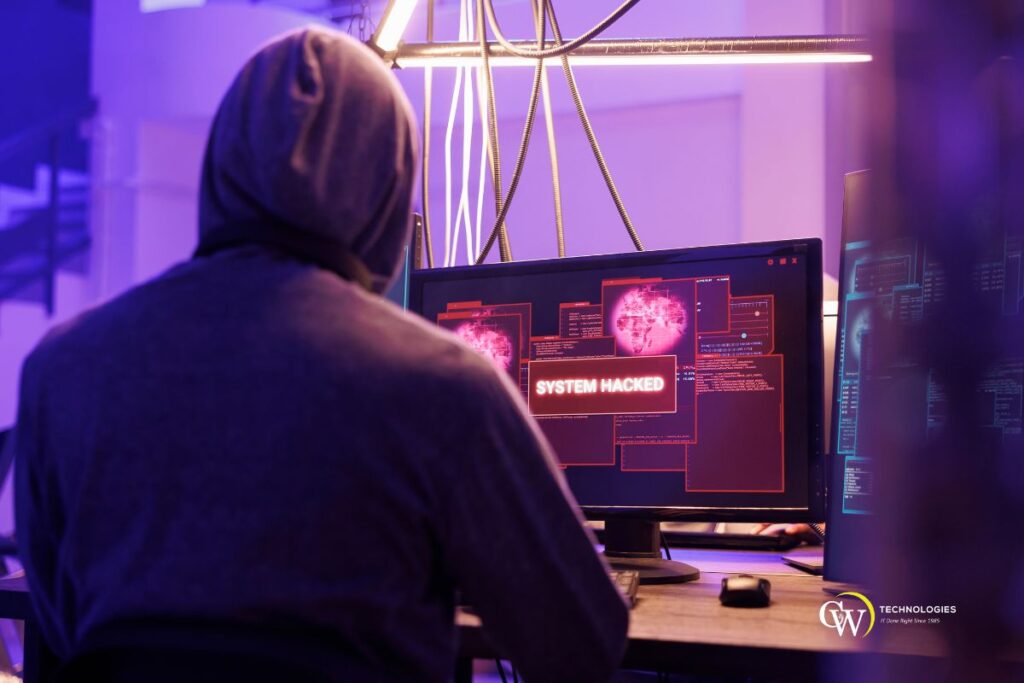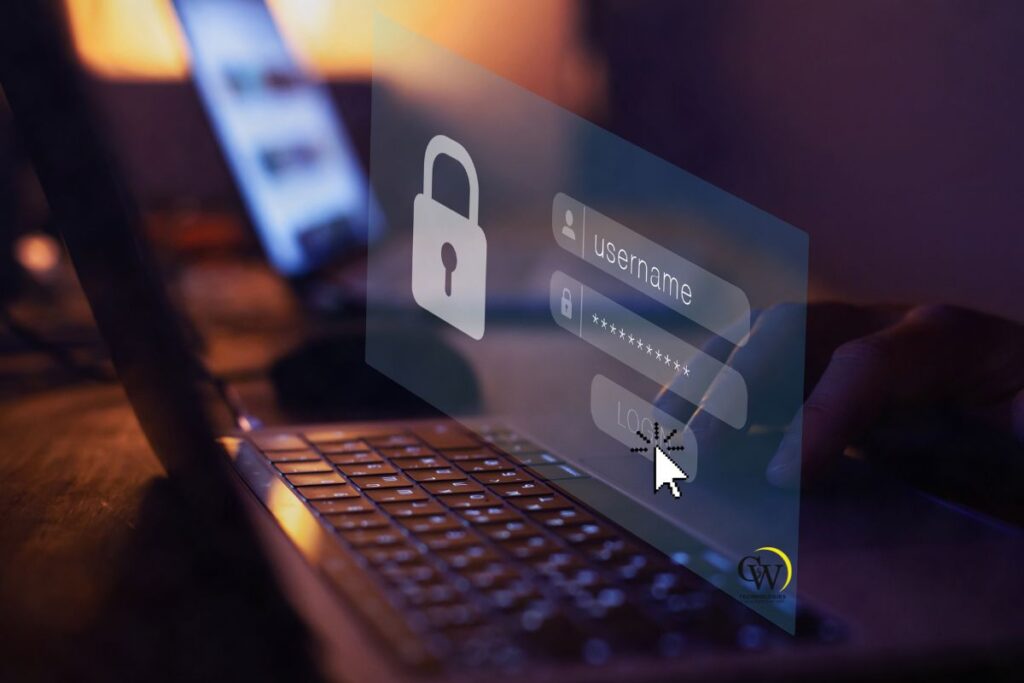Cybersecurity Awareness Month- How to Stay in the Know

October is cybersecurity awareness month, so whether you’re a business owner, a member of the public, or an IT professional, cybersecurity education helps safeguard your sensitive information and keep your systems secure. In today’s digital age, cybersecurity is more crucial than ever. Over the course of this piece, it will unravel defense tactics that empowers individuals to stay protected online. Additionally, cybersecurity awareness prepares individuals for online safety and threats, fostering awareness of the online world. In honor of cybersecurity awareness month, this passage will explore cybersecurity’s role in the digital world and the importance of raising awareness to reduce online risk.
What is Cybersecurity?
Cybersecurity refers to the practices and technologies designed to shield computers, networks, programs, and data from unauthorized access or attacks. It encompasses everything from encryption and firewalls to antivirus and secure network protocols. The goal of cybersecurity is to prevent unauthorized access, theft, damage, or disruption of computer systems and networks.
Why is Cybersecurity Important?
As technology and internet connectivity become more central in our lives, cybersecurity is crucial for protecting private data. Cyberattacks can cause major financial losses and damage reputations. Therefore, organizations must prioritize cybersecurity awareness, recognize its importance, and stay safe online.
Who Are Most Affected by Cyberattacks?
Cyberattacks can affect anyone online, but small and medium-sized businesses and individuals handling sensitive data are particularly vulnerable. Small businesses and medium sized businesses often lack resources and advanced cybersecurity, making them easy targets. IT professionals who neglect protocols increase the risk of data breaches. It is crucial for everyone involved to brush up on their cybersecurity awareness in order to protect themselves from future mishaps.
How to Know If You Are Affected
Quickly detecting digital threats is crucial. Look for signs like pop-ups, unknown programs, or slow devices for malware; increased spam or odd transactions for phishing; and account lockouts for unauthorized access. Having cybersecurity awareness will help you better understand what to look for when it comes to your online safety.
How Cybersecurity Affects Different People
For Businesses
- Data Protection: They manage large amounts of sensitive information, including customer and proprietary data.
- Trust and Reputation: A cyberattack can harm a business’s reputation, causing loss of trust and financial damage.
- Regulatory Compliance: Many industries have strict data protection regulations. Good cybersecurity ensures compliance.
For Individuals
- Personal Privacy: Cybersecurity shields your personal information from identity theft and fraud.
- Financial Security: Cyber-attacks can target your financial accounts. Proper protection prevents unauthorized transactions.
Common Cybersecurity Threats
- Phishing: Emails or messages designed to trick you into revealing personal information.
- Malware: Software intended to harm or exploit devices, services, or networks.
- Ransomware: Malware that encrypts your files, demanding payment for release.
- Social Engineering: Tactics used by cybercriminals to manipulate individuals into divulging confidential information, often by impersonating trusted entities or using emotional manipulation.
- Denial-of-Service (DoS) Attacks: Attempts to make a service unavailable by overwhelming it with traffic, disrupting access for legitimate users and causing downtime and revenue loss.
- Man-in-the-Middle (MitM) Attacks: Occur when a malicious actor intercepts communication between two parties to steal data like login credentials.
Who is Responsible for Cybersecurity?
Cybersecurity awareness requires collaboration between the individual, establishment, and government to ensure online safety and mitigate digital threats.
- Individuals: Everyone online must maintain their digital hygiene.
- Establishments: Companies should implement strong cybersecurity measures, train employees, and comply with regulations, typically managed by the IT department.
- Government: The government establishes laws and regulations to guide cybersecurity practices and protect citizens.
National Cybersecurity Alliance
The National Cybersecurity Alliance (NCA) is a nonprofit focused on enhancing digital safety by educating and empowering people and organizations. Through partnerships with government, industry, and nonprofits, it boosts cybersecurity awareness and practices. Known for leading initiatives like Cybersecurity Awareness Month and Data Privacy Week, the NCA provides resources to help protect online activities, aiming to create a secure digital environment.
How to Protect Yourself from Cyber Threats
Implementing good cybersecurity habits can greatly reduce the risk of cyber threats. Here are some simple ways to safeguard against electronic threats.
- Use Strong, Unique Passwords: Secure your accounts with strong, unique passwords. Avoid reusing passwords and consider a password manager.
- Enable Two-Factor Authentication (multifactor authentication): Add an extra security layer by requiring a second verification form, like a text or app code.
- Keep Software Up to Date: Regularly update your software and apps to protect against hacker exploits.
- Be Cautious with Links and Attachments: Avoid clicking on links or downloading attachments from unknown sources to prevent phishing and malware.
- Educate and Train: Staying informed about the latest threats and training yourself and your team to recognize and respond to them. Being vigilant is crucial with electronic threats.
Regular cybersecurity awareness training is essential to counter evolving threats, with at least annual sessions recommended. More frequent updates, such as monthly reminders and quarterly workshops, help individuals and organizations stay prepared and integrate security into daily habits.
The Role of IT Professionals in Cybersecurity
IT professionals play a vital role in safeguarding data and systems. They are responsible for implementing security measures, monitoring for potential dangers, and responding to incidents promptly. When an IT professional possesses cybersecurity awareness, they are setting up a business for success.
Future Trends in Cybersecurity
Listed below are future trends that can help detect risks and boost cybersecurity awareness.
- Artificial Intelligence (AI): AI is being used to predict and identify potential cybersecurity threats more efficiently.
- Cloud Security: With more establishments moving to cloud computing, securing cloud environments is becoming increasingly important.
- IoT Security: The Internet of Things (IoT) is expanding, requiring enhanced security measures for interconnected devices.
What to Do If You’re Hacked
Act quickly if you suspect a cybersecurity breach to minimize damage. Follow this guide for steps to take:
- In case of a security breach, immediately assess the situation, change passwords, enable two-factor authentication, and disconnect from the internet. Check for unauthorized activity, update software, scan for malware, restore from secure backups, if necessary, report the incident, and inform affected contacts. Seek professional cybersecurity help for complex issues.
Implementing effective cybersecurity awareness measures is crucial for digital protection. Staying informed helps individuals and businesses remain secure in a connected world.
Who is C&W Technologies?
C&W Technologies, a leading IT services provider since 1985, specializes in cybersecurity, IT support, and consulting. We offer tailored technology solutions focused on customer satisfaction, helping businesses and individuals stay secure and efficient. C&W is committed to raising cybersecurity awareness and strengthening an organization and its defenses against online threats, making them a trusted partner in navigating IT complexities.
How C&W Can Help with Cybersecurity?
As C&W Technologies wants to raise cybersecurity awareness, we also offer comprehensive cybersecurity solutions, including network security, monitoring, and incident response, to protect against online threats. We provide regular security assessments, employee training, and customizable solutions like data encryption and secure cloud services to ensure digital environments are secure and resilient.
For more information or assistance from security professionals, please fill out the following form:
Frequently Asked Questions About Cybersecurity (FAQ’S)
How often should I update my passwords?
Update passwords every 60 to 90 days, especially for sensitive accounts. Regular changes protect against unauthorized access.
This could help protect your personal data against vulnerabilities.
Are all internet-connected devices vulnerable to cyber threats?
Yes, all internet-connected devices can be vulnerable if not secured. This includes computers, smartphones, IoT devices, and smart TVs. Use strong passwords and keep software updated to reduce risks.
What should I do if I receive a suspicious email?
Don’t click links or attachments in suspicious emails. Verify the sender through a trusted source if needed and report it as phishing or spam. Deleting it without opening is also safe.
How often should I back up my data?
Back up important data at least weekly. Depending on new data volume, more frequent backups may be needed. Regular backups are crucial for data recovery in a cyberattack or system failure.



